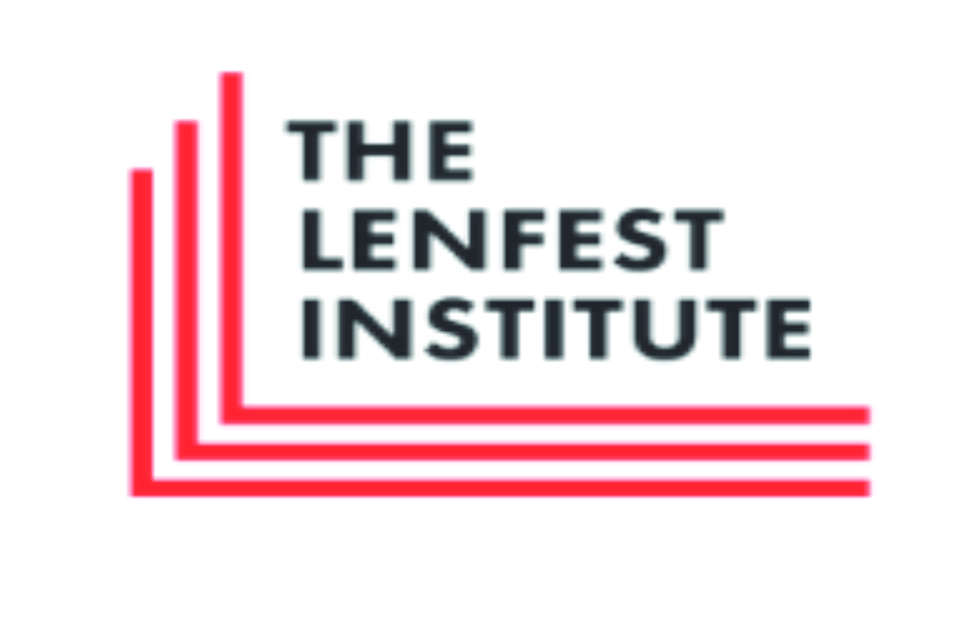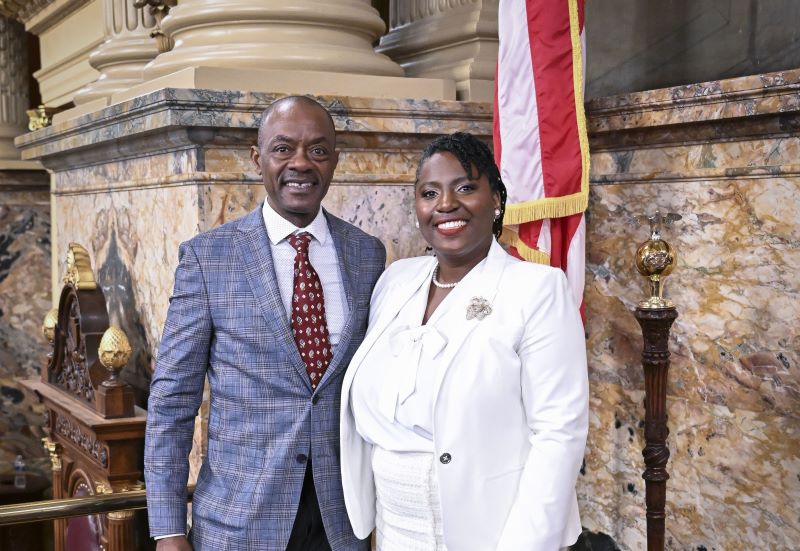How the first Inspector General of Police combined purpose with politics to introduce discipline, root out corruption, and redefine the national security service in post-war Liberia
The call from the Executive Mansion was direct. Joseph C. Kekula, newly appointed as Deputy Director for Administration of the Liberian National Police, was being summoned by the head of state, Chairman Gyude Bryant. Having just returned to a fragile, post-war Liberia from exile in Ghana, this should have been a moment of triumph. Instead, it was a test. In the mansion, Chairman Bryant delivered the message “I want you to return the letter of appointment.” The reasoning was political; “The UNMIL is requesting that a female be appointed…, so as to have gender balance in the police.”
For Kekula, a man who insists he has “never in my life gone to lobby for position,” it was a pivotal moment. He could acquiesce to the head of state and accept a vague promise of another role, or he could stand his ground. His decision defined his future and would set the course for the reformation of a broken institution critical to the nation’s survival.
A Fateful Walk and a Test of Wills
Kekula’s journey to that office began not with a political campaign, but with a simple walk. After years in exile participating in peace conferences in Abuja, Ouagadougou, and Accra to end Liberia’s devastating civil war, he returned home in 2003. One day, while walking down UN Drive, he was stopped by the Honorable David Kotie (Chairman of ALCOP), who recognized his quiet expertise in security. Koti saw a man Liberia needed. That chance encounter led to Kekula’s nomination.
Now faced with the demand to surrender his appointment, Kekula weighed his options. He had dedicated his life to security since his early days at the University of Liberia. Although he had to drop out to join the Special Security Service (SSS) in the 1970s, his belief in education never wavered, and he later returned to the university to complete his degree. He knew his capabilities. “I thought to myself not to accept the proposal,” he recalled. He believed that being appointed to a position where he wasn’t knowledgeable “would be a shame for me.”
Politely, he told the Chairman, he would go and retrieve the letter from his house. But as soon as he left the Executive Mansion, he executed a brilliant strategic maneuver. He bypassed the politicians and “went straight to the Liberian National Police Headquarters.” There, he presented his letter to the Director of Police, the Hon. Christopher C. Massaquoi, who promptly held a press conference announcing Kekula’s appointment. The news was out publicly. “Interestingly, neither Honorable Koti nor Chairman Bryant approached me anymore on the issue,” Kekula recounted. He had secured his post, not through patronage, but through principle and quick thinking.

Confronting the Rot
Soon after, Kekula was appointed Acting Director of the entire police force, inheriting an institution in shambles. The LNP was plagued by a culture of indiscipline. “Most of the time a lot of people, especially the leaders of the LNP will come to work anytime between 9 a.m. and 11 a.m.,” he remembered, adding: “and that was not going down well with me.” His first act was to instill a sense of structure and institute a mandatory staff meeting at 8 a.m. every single morning.
The resistance was immediate and fierce. “At the beginning, everybody hated me for that,” Kekula admitted. “Some of them even physically spoke to me about how they were against it, questioning what I was trying to prove. But I didn’t listen to anybody.”
The problems ran deeper than tardiness. The men and women of the force were earning an abysmal wage. “I realized that the LNP privates were making like $16 equivalent for the whole month,” Kekula said. “So, I said this was not acceptable.” He took the issue to the Minister of Justice, the Hon. Kabinah Janneh, who was always supportive of the LNP leadership. Both of them made it an agenda priority for the Rule of Law Implementation Committee. Kekula was asked to draft a proposal, and eventually negotiated a landmark pay increase to $90 a month. It was a crucial step in professionalizing and ingratiating the force, while curbing the temptation for corruption.
Architect of a New Force
With discipline and pay being addressed, Kekula then turned to the very soul of the institution.
Before his leadership, the LNP used military ranks- Colonel, Major, Captain – making police indistinguishable from soldiers. After the coup, the police became more militarized, not just in structure, but in mentality: “Therefore, we needed to demilitarize the psychology of the reformed police officers and harmonize our ranking system with other English-speaking countries in the sub-region,” explained Kekula.
“We were reforming everything, but still used military ranks for a civil institution,” Kekula noted, adding: “That didn’t make sense.
He proposed a civilian ranking system with titles like Inspector General, Deputy Inspector General, Commissioner, Superintendent, and so on. His plan was passed into law through the Legislature and later signed into law by executive order.
“We designed the new insignia,” he said. Before that, police used the military insignia “To this day, that ranking system still stands. But many people, including journalists, did not realize the effect it had on the psychology of the institution, and they still call the IG ‘Colonel.’ Most likely, they don’t know why we changed it.”
With this reform, Joseph C. Kekula “became the first Inspector General of Police.
The Purifier: Fighting Corruption and Fear
His next target was to address corruption within the ranks. Kekula discovered the LNP payroll was bloated with phantom jobs. Checks were being issued to people who didn’t exist. He coordinated with the Ministry of Finance to ensure every officer collected pay in person. In doing so, he eliminated 600 ghost workers. The backlash was swift and sinister. He received death threats. Callers, with their voices disguised, would tell him: “You come from Ghana to come and spoil our life here. We will kill you.”
But Kekula, a man who had survived a war, was unmoved. His response was steeped in the grim reality of his nation’s recent past. “I would tell them: ‘Look, more than 200,000 people have died in Liberia. I’m no exception.’ “So, I’m not afraid of death. Nobody can threaten me.”
The Police Support Unit: Building Force Capacity
Understanding Liberia’s post-war volatility, Kekula recognized the lack of capacity to manage civil unrest. “I had lived in Nigeria,” he reflected. “I saw how their mobile police handled riots. We needed that in Liberia.” He went to the supportive Minister of Justice and approached Nigerian General Abdulsalami Abubakar, the facilitator of the Accra peace talks. Later, he met with the Nigerian government to propose a partnership.
To carry out his goal, he landed support from UNMIL and Liberia’s Ministry of Justice; 300 Liberian officers were sent to Goza, Nigeria for riot-control training. They returned to form the still-functioning LNP’s first Police Support Unit (PSU)

Reconnecting to the World
During Liberia’s war years, the country had fallen off Interpol’s active directory. Kekula knew that to stop cross-border crime, especially vehicle theft, the LNP needed that international link restored. He attended the Interpol Conference in Berlin, had a one-on-one meeting with then-Secretary General, Mr. Roland Noble, and negotiated Liberia’s re-entry.
“They sent a team to install the communications infrastructure,” he recalled. “We were connected with over 100 INTERPOL member countries. After that, we successfully tracked and retrieved stolen vehicles from Guinea and Sierra Leone. Then the thefts stopped.”
A Promise Kept
The ultimate test of his work came with the country’s first post-war presidential elections. The world watched, wondering if Liberia could manage a peaceful transition. Kekula headed the joint security for the planning of the elections. The result was a resounding success.
“We were very successful in providing security for the first election after the war, with logistical support from UNMIL,” he said proudly. “We were able to usher in a democratically elected government.” The police force, once a broken and corrupt symbol of a failed state, had become a guarantor of its new democracy.
Today, Kekula noted with a hint of frustration that this history is not widely known. “A lot of people in Liberia do not even know who the first Inspector General of Police was,” he said. “They don’t know how and why the ranking system of the police was changed. Most people think that everything that happened to reform the LNP was done by UNMIL (UNPOL), not realizing the cardinal role played by the leadership of the LNP in directing the change”.
Yet, the legacy of the accidental architect endures, embedded in the very structure of the force that he methodically rebuilt. And for the man who never sought power but wielded it with courage and vision, there is a quiet, profound satisfaction. When asked how he wanted to be remembered, Kekula did not point to lofty titles.
“We did some things that will always be with the LNP, ” he recollected. “We changed how the police see themselves, and how they serve the public.”
His reforms restructured an agency and rebuilt public confidence. Ultimately, former IG Joseph C. Kekula’s contributions established credibility, helping to professionalize Liberia’s police after a decade of chaos.

IGP Joseph C Kekula LNP, UNPOL Commissional Mark Krocker, Liberia Minister of Gender, Varbah Gayflor, and SRSG Jacques Paul Klein

Dr. Eric John Nzeribe is the Publisher of FunTimes Magazine and has a demonstrated history of working in the publishing industry since 1992. His interests include using data to understand and solve social issues, narrative stories, digital marketing, community engagement, and online/print journalism features. Dr. Nzeribe is a social media and communication professional with certificates in Digital Media for Social Impact from the University of Pennsylvania, Digital Strategies for Business: Leading the Next-Generation Enterprise from Columbia University, and a Master of Science (MS) in Publication Management from Drexel University and a Doctorate in Business Administration from Temple University.









The Honorable Mr. Joseph C. Kekula
Former Director, Liberia National Police
Dear Mr. Kekula,
I am writing to express my heartfelt appreciation for the transformative reforms you spearheaded during your tenure as Director of the Liberia National Police. Your leadership and vision have left an indelible mark on the institution in which I am an example. I entered the Liberia National Police Academy on October 18, 2004, at that time the American were in charge and I graduated and got employed in June 2005. I am from the fifth Class and up to present the impact of your work is stay felt and will be felt for generations to come.
Under your guidance, the Liberia National Police underwent significant changes that enhanced its effectiveness, professionalism, and accountability. Your commitment to reform has not only improved the force’s operational capacity but also fostered a culture of transparency and community trust.
Your efforts to modernize the police force, promote community policing, and address human rights concerns have been particularly noteworthy. These initiatives have contributed to a safer and more secure environment for the people of Liberia.
I commend your dedication to public service and your unwavering commitment to the welfare of police officers and the Liberian people at large. Your legacy as Director of Police will undoubtedly continue to inspire future generations of law enforcement professionals.
Once again, I extend my sincerest gratitude for your outstanding service to the Liberia National Police and the nation. I wish you continued success in all your future endeavors.
Sincerely,
Alphonso G. Morlue